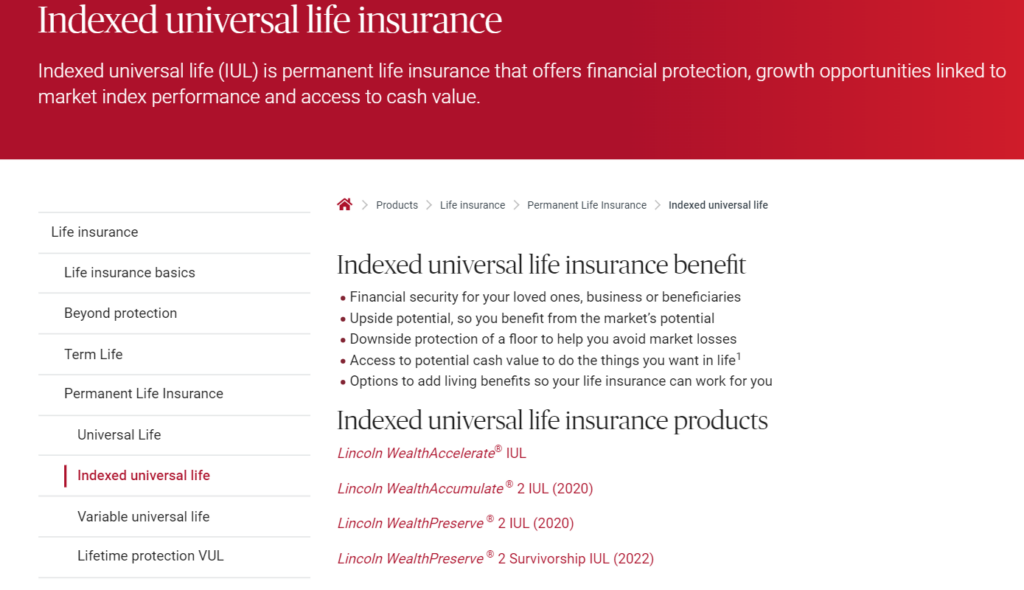All Categories
Featured
Table of Contents
Do they contrast the IUL to something like the Lead Overall Stock Market Fund Admiral Shares with no tons, an expenditure proportion (ER) of 5 basis points, a turn over proportion of 4.3%, and an outstanding tax-efficient record of distributions? No, they contrast it to some dreadful proactively handled fund with an 8% lots, a 2% EMERGENCY ROOM, an 80% turn over proportion, and an awful document of short-term funding gain distributions.
Common funds commonly make yearly taxed distributions to fund owners, also when the value of their fund has gone down in worth. Common funds not only need income reporting (and the resulting yearly taxes) when the mutual fund is going up in worth, but can also impose earnings tax obligations in a year when the fund has decreased in worth.
You can tax-manage the fund, collecting losses and gains in order to reduce taxable distributions to the capitalists, yet that isn't in some way going to transform the reported return of the fund. The possession of mutual funds may require the mutual fund owner to pay approximated tax obligations (back end load universal life).

IULs are very easy to position to make sure that, at the proprietor's death, the beneficiary is not subject to either earnings or estate tax obligations. The exact same tax decrease strategies do not work virtually too with shared funds. There are numerous, typically costly, tax traps related to the timed buying and selling of common fund shares, traps that do not relate to indexed life insurance policy.
Chances aren't very high that you're mosting likely to go through the AMT as a result of your common fund distributions if you aren't without them. The remainder of this one is half-truths at finest. For example, while it is real that there is no revenue tax due to your heirs when they inherit the proceeds of your IUL policy, it is additionally real that there is no revenue tax as a result of your successors when they inherit a mutual fund in a taxed account from you.
Universal Life Insurance Questions
There are better means to prevent estate tax obligation issues than purchasing financial investments with low returns. Shared funds may cause income taxation of Social Security benefits.

The development within the IUL is tax-deferred and may be taken as tax free revenue through lendings. The policy proprietor (vs. the shared fund manager) is in control of his or her reportable income, therefore allowing them to reduce or even get rid of the taxes of their Social Protection advantages. This set is wonderful.
Here's one more very little issue. It holds true if you get a mutual fund for state $10 per share right before the distribution day, and it disperses a $0.50 distribution, you are after that going to owe tax obligations (most likely 7-10 cents per share) although that you haven't yet had any type of gains.
In the end, it's really about the after-tax return, not just how much you pay in tax obligations. You are mosting likely to pay more in taxes by utilizing a taxed account than if you purchase life insurance policy. Yet you're likewise possibly mosting likely to have more money after paying those taxes. The record-keeping demands for possessing mutual funds are considerably extra complicated.
With an IUL, one's documents are maintained by the insurance business, duplicates of annual statements are mailed to the owner, and distributions (if any type of) are completed and reported at year end. This set is additionally sort of silly. Naturally you must maintain your tax obligation records in instance of an audit.
Guaranteed Death Benefit Universal Life
All you have to do is push the paper right into your tax obligation folder when it appears in the mail. Hardly a factor to purchase life insurance policy. It's like this person has never ever bought a taxable account or something. Mutual funds are typically component of a decedent's probated estate.
Additionally, they are subject to the hold-ups and costs of probate. The profits of the IUL plan, on the various other hand, is always a non-probate distribution that passes outside of probate directly to one's named recipients, and is consequently not subject to one's posthumous financial institutions, unwanted public disclosure, or comparable hold-ups and prices.
We covered this one under # 7, however just to wrap up, if you have a taxed common fund account, you have to put it in a revocable trust fund (or even less complicated, use the Transfer on Death classification) to avoid probate. Medicaid incompetency and life time revenue. An IUL can provide their owners with a stream of revenue for their entire life time, no matter for how long they live.

This is valuable when organizing one's affairs, and transforming possessions to income prior to a retirement home confinement. Common funds can not be converted in a comparable manner, and are often thought about countable Medicaid possessions. This is one more foolish one promoting that bad people (you understand, the ones that need Medicaid, a federal government program for the inadequate, to pay for their assisted living home) should utilize IUL instead of common funds.
Index Linked Term Insurance
And life insurance policy looks terrible when compared fairly versus a retirement account. Second, people that have money to purchase IUL over and beyond their pension are mosting likely to need to be horrible at handling money in order to ever receive Medicaid to pay for their nursing home expenses.
Chronic and terminal illness cyclist. All plans will certainly permit a proprietor's simple access to cash from their policy, usually waiving any kind of abandonment penalties when such people suffer a severe ailment, require at-home treatment, or end up being confined to a nursing home. Mutual funds do not give a similar waiver when contingent deferred sales charges still use to a shared fund account whose owner needs to sell some shares to fund the expenses of such a keep.
Back End Load Universal Life
You get to pay more for that benefit (motorcyclist) with an insurance coverage policy. What a lot! Indexed global life insurance policy supplies survivor benefit to the recipients of the IUL proprietors, and neither the owner neither the beneficiary can ever lose cash as a result of a down market. Common funds give no such warranties or death advantages of any type of kind.
Currently, ask yourself, do you in fact need or want a survivor benefit? I definitely do not need one after I reach financial independence. Do I desire one? I suppose if it were cheap enough. Naturally, it isn't economical. Usually, a buyer of life insurance policy spends for the real price of the life insurance advantage, plus the prices of the policy, plus the earnings of the insurer.
Equity Indexed Whole Life Insurance
I'm not entirely sure why Mr. Morais included the entire "you can't lose money" once again right here as it was covered quite well in # 1. He simply intended to duplicate the most effective selling point for these points I intend. Again, you don't lose nominal bucks, yet you can shed genuine bucks, as well as face serious opportunity cost due to reduced returns.

An indexed global life insurance policy owner may trade their policy for an entirely various plan without activating income taxes. A shared fund proprietor can stagnate funds from one mutual fund firm to another without selling his shares at the previous (thus setting off a taxed occasion), and buying brand-new shares at the last, frequently based on sales fees at both.
While it is true that you can exchange one insurance policy for an additional, the factor that people do this is that the initial one is such a horrible policy that even after acquiring a brand-new one and experiencing the very early, negative return years, you'll still come out ahead. If they were marketed the right policy the very first time, they shouldn't have any kind of wish to ever before exchange it and undergo the early, adverse return years once again.
Latest Posts
Universal Life Insurance Retirement
Universal Life Insurance Broker
Guaranteed Universal Life Insurance Companies